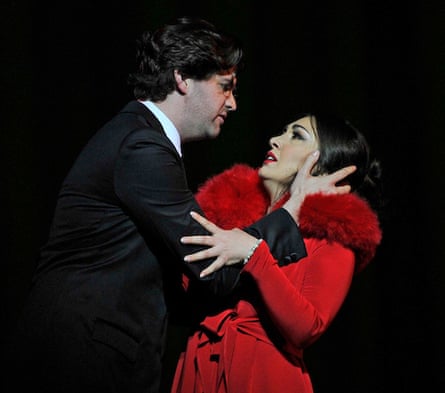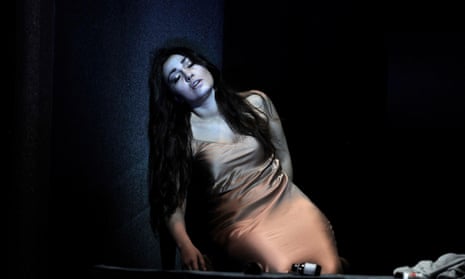Less means infinitely more in Tom Cairns’s production of La Traviata, first seen in 2014, now returning for its first festival revival. Aware that the work’s realism was considered controversial in Verdi’s lifetime, Cairns stages it as a modern-dress conversation piece, from which any trace of melodrama or sentimentality has been stripped away. We are closer to Chekhovian naturalism than to operatic convention. There are a couple of slips: like many directors, Cairns doesn’t quite know what to do with the divertissement at Flora’s party: and the way Hildegard Bechtler’s set turns increasingly abstract as Violetta’s life ebbs away strikes an obtrusively symbolic note. But the absence of grand gestures and a telling richness of psychological and social detail draw us into the protagonists’ lives with great subtlety.

We really believe in the attraction between Kristina Mkhitaryan’s troubled Violetta and Zach Borichevsky’s lanky, charismatic Alfredo. He sometimes strays off pitch in moments of ardour or fury. She sings with dark beauty of tone and a wonderful feel for text and character. Sempre Libera is about emotional veracity rather than display. Her duet with Igor Golovatenko’s forceful yet sympathetic Giorgio, heartbreakingly done, is an object lesson in musical and dramatic understanding on both sides. In the pit, Richard Farnes propels the score forwards, though nothing feels hectored or rushed.
The overall impression is of deep, contained sadness rather than histrionic tragedy, and the evening is all the more effective for it.

Comments (…)
Sign in or create your Guardian account to join the discussion